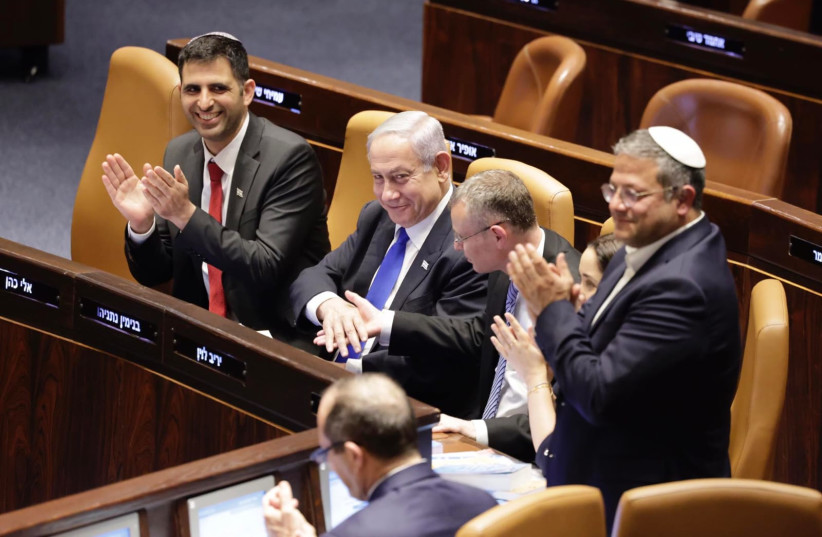Amid the plethora of protests sweeping across the land, the one that began with a prayer for the country’s unity at the Western Wall on Sunday morning stood out.
More than the anti-reform protest march in Jerusalem on Sunday afternoon and more than the pro-reform demonstration in Tel Aviv a few hours later, this rally – starting from the Western Wall and continuing as a human chain to the Knesset – stood out for its diversity. The participants were not all cut of the same cloth: They came from the Right and the Left and included those in favor of the reform and those opposed, religious and secular, rabbis and professors.
And their call was simple: Stop the divisions that threaten to tear the country apart.
The signs held at this rally differed from those seen at other protests. They didn’t cast blame, demonize the other side, or predict a dystopian future for Israel. Instead, they called for cooler heads to prevail to prevent an insurmountable schism.
For instance, one sign read: “Support the reform? Oppose the reform? Struggle over the path, but don’t break up the family.”

That both sides of the political spectrum were represented at this rally, and that individuals from opposing ends of the judicial debate linked arms in a human chain to the Knesset, demonstrated that this divide is not irreparable. All it will take is willingness from all sides to compromise and show goodwill.
Therein, however, lies the challenge
This debate has long ago ceased being only about judicial reform or bringing down the government. This debate has become emotional, with extremists on both sides seeking absolute victory.
Among those in favor of the judicial reform, some, such as National Security Minister Itamar Ben-Gvir, want to assert dominance over the other side. How else to explain his inexplicable tweet on Saturday that “the salad bar is open,” implying that legislation restricting the court’s ability to use the “reasonableness standard” is the appetizer before the main course? This type of discourse only exacerbates an already overheated situation.
On the other side, the leaders of the protest movement are determined to show their strength by mobilizing reserve pilots, hi-tech tycoons, and doctors to halt any and all form of judicial reform, regardless of its content. They, too, want to show the other side who’s boss.
After seven turbulent months in which this debate has overshadowed everything else, it is time for all sides to recognize two hard truths: First, the government cannot push through transformative societal legislation without consensus; and second, there is room for moderate, consensual judicial reform. Only by acknowledging these truths will it be possible to move forward.
There is still time for the government and the opposition to reach a compromise on a softened version of the reasonableness legislation.
This can be passed during the current Knesset session that ends next Monday, along with an agreement that negotiations will then resume on other aspects of the judicial reform and that there will only be further legislation with the consent of 75 MKs. This is one suggestion under consideration, though there is disagreement about the length of this freeze period – Likud wants it to be six months, National Unity wants it for 18 months.
This is something that can be easily dealt with. Compromise ideas and bridging proposals are out there. What is needed is simply for the country’s leaders – first and foremost Prime Minister Benjamin Netanyahu, but also the opposition leaders and leaders of the protest movement – to genuinely show a willingness to compromise.
The all-or-nothing approach – the government saying that the reasonableness clause should be passed as is at all cost, and the protest leaders and opposition saying there must be no reform under any circumstances – is leading the country to the brink of disaster.
Compromise is difficult, especially for those firmly convinced that only they are right. But compromise is essential now as internal divisions widen, chipping away at Israel’s solidarity and cohesion and undoubtedly whetting the appetite of Israel’s enemies. Compromise is not a sign of surrender, weakness or giving in. On the contrary, it is the most crucial need of the hour.
